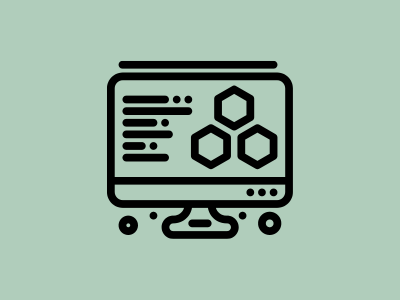Protect Yourself Online: How to Avoid Downloading Malicious Code

In today’s digital age, where we rely heavily on the internet for various tasks, understanding how to avoid downloading malicious code is paramount. The threat of malicious code lurking in seemingly harmless downloads is more prevalent than ever. From viruses to ransomware, the consequences of unwittingly downloading malicious code can be severe, ranging from identity theft to complete system compromise. Therefore, safeguarding yourself against such threats is essential for ensuring a safe online experience.
Table of Contents
Overview:
Malicious code refers to any software intentionally designed to cause damage to a computer, server, client, or network. It can come in various forms, including viruses, worms, Trojans, spyware, and ransomware. These codes often masquerade as legitimate files, making them challenging to detect.
Key Points:
Keep your operating system and software up to date: Regularly update your operating system and applications to patch any security vulnerabilities that hackers could exploit.
- Exercise vigilance with dubious links and emails: Refrain from interacting with links or downloading attachments from unfamiliar or untrustworthy sources, as they may harbor malicious content that could compromise your system’s security.
- Use reputable antivirus software: Install and regularly update antivirus software to detect and remove malicious code from your system.
- Activate firewalls: Employing firewalls serves as a protective shield between your device and the internet, inhibiting unauthorized entry and thwarting attempts by malware to infiltrate your system.
Benefits of Avoiding Malicious Code:
- Protect your personal and sensitive information: By avoiding malicious code, you can prevent hackers from accessing your data, such as passwords, credit card information, and private messages.
- Maintain system integrity: Preventing malware infections helps ensure the smooth functioning of your computer system, minimizing downtime and potential data loss.
- Safeguard against financial loss: Avoiding malicious code can prevent financial losses associated with identity theft, ransomware attacks, and other cybercrimes.
Applications/Uses:
Avoiding malicious code is essential for individuals, businesses, and organizations alike. It applies to anyone who uses the internet for communication, banking, shopping, or storing sensitive information.
How can you avoid downloading malicious code:
Verify the source: Only download files and software from reputable sources, such as official websites or app stores. Avoid downloading pirated software or content from untrustworthy sources, as they often contain hidden malware.
Read user reviews: Before downloading any software or file, read user reviews and ratings to gauge its legitimacy and reliability. Be wary of software with few or no reviews, as they may be suspicious.
Use download managers: Consider using download managers or browser extensions that offer security features, such as scanning files for malware before downloading them.
Educate yourself: Stay informed about the latest cybersecurity threats and best practices for safe internet usage. By educating yourself, you can recognize potential risks and take proactive measures to protect your devices and data.
The most popular questions about avoid downloading malicious code
How does Windows 10 protect downloads from malicious sites?
Windows 10 employs several built-in security features to protect downloads from malicious sites. These include Windows Defender SmartScreen, which identifies and blocks potentially harmful downloads, and Microsoft Defender Antivirus, which scans files for malware before allowing them to execute on the system. Additionally, Windows 10 regularly updates its security protocols to stay ahead of emerging threats, providing users with a robust defense against malicious downloads.
How do I remove malicious sites from my computer?
To remove malicious sites from your computer, start by running a reputable antivirus or antimalware scan to detect and remove any malicious software. Additionally, you can reset your web browser settings to default to eliminate any unwanted extensions or changes made by malicious sites. It’s also essential to clear your browser’s cache and cookies regularly to remove any traces of malicious activity. Finally, ensure that your operating system and software are up to date to patch any security vulnerabilities that could be exploited by malicious sites.
What are 3 reasons computer security is important?
Protection of Sensitive Information
Computer security ensures the confidentiality of sensitive data, such as personal information, financial records, and intellectual property. Preventing unauthorized access to this information safeguards individuals, businesses, and organizations from data breaches and identity theft.
Prevention of Cyber Attacks
Computer security measures help prevent various cyber attacks, including malware infections, phishing attempts, and ransomware attacks. By implementing firewalls, antivirus software, and intrusion detection systems, individuals and organizations can detect and mitigate potential threats before they cause harm.
Maintenance of System Integrity and Availability
Computer security is essential for maintaining the integrity and availability of computer systems and networks. Protecting against malware infections and unauthorized access ensures that systems operate smoothly and efficiently. Additionally, security measures such as regular software updates and data backups help minimize downtime and prevent data loss due to cyber incidents or system failures.
Conclusion
Protecting yourself against malicious code is crucial in today’s digital landscape, where cyber threats are constantly evolving and becoming more sophisticated. By following the tips outlined in this article, such as keeping your software updated, exercising caution when clicking on links, and using reputable antivirus software, you can minimize the risk of downloading malicious code and safeguard your online security. Remember, an ounce of prevention is worth a pound of cure, so take proactive steps to protect yourself and your digital assets from harm.




